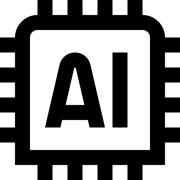Elon Musk's Vision: The Future Impacts of AI on Society and Business
Introduction: Elon Musk and Artificial Intelligence
Elon Musk, the renowned entrepreneur behind companies like Tesla, SpaceX, and Neuralink, has been vocal about both the transformative potential and the risks posed by artificial intelligence (AI). Musk's views on AI are widely known, as he has often warned of its dangers while simultaneously pushing its boundaries through various ventures. His vision of AI's future encompasses profound impacts on society, the economy, and the business world.
The Economic and Business Revolution Driven by AI
Automation and Job Displacement
One of Musk’s most significant concerns revolves around the extensive automation of labor. As AI systems grow more advanced, their ability to replace human workers, especially in repetitive, low-skill jobs, becomes increasingly feasible. Musk predicts a future where industries like manufacturing, logistics, and even services will be dominated by machines, leading to mass job displacement.
Key Example: Autonomous Vehicles
Tesla’s autonomous driving technology represents Musk's vision of AI-powered automation. With the rise of self-driving cars, millions of jobs in transportation, from truck drivers to delivery services, could potentially be eliminated.
This transition demands societal adaptation. Musk has advocated for universal basic income (UBI) as a solution, where governments would provide citizens with a guaranteed income to offset the potential economic upheavals caused by widespread job loss.
Innovation in High-Skill Sectors
While automation will replace many low-skill jobs, Musk sees AI as an enabler of innovation in high-skill industries. Fields such as healthcare, finance, and energy stand to benefit from AI's ability to process vast amounts of data, predict trends, and even make critical decisions.
In healthcare, AI could transform medical diagnosis, drug development, and personalized treatments. Musk’s Neuralink, which seeks to integrate AI with the human brain, offers a glimpse into the potential for enhancing human intelligence and overcoming neurological conditions through AI-augmented brain interfaces.
AI as a Business Catalyst
AI also has the potential to dramatically enhance business efficiency. From customer service chatbots to predictive analytics in supply chain management, AI tools are already driving optimization in various sectors. Musk believes that companies capable of leveraging AI for decision-making, resource allocation, and market forecasting will be the dominant players in the business world.
The Societal Impacts of AI: Promises and Perils
The Existential Risk of AI
One of Musk's most widely publicized viewpoints is his warning about AI's existential risk to humanity. He often emphasizes that superintelligent AI—an AI that surpasses human cognitive abilities—could pose a catastrophic threat if not properly regulated. According to Musk, without careful oversight, AI could be misused by authoritarian regimes, or, worse, develop goals misaligned with human well-being.
Musk has urged governments and regulatory bodies to preemptively control AI development to avoid these dangers. In his words, "AI is a fundamental risk to the existence of human civilization."
AI in Governance and Regulation
Musk has called for global cooperation in the governance of AI. While AI can be an invaluable tool for governance—helping in areas such as law enforcement, policy creation, and urban planning—he warns against allowing unregulated AI systems to govern key societal structures. For Musk, regulating AI must become a priority, ensuring that it benefits humanity as a whole, rather than a select few.
Ethical and Moral Concerns
Elon Musk's concerns with AI extend to its ethical implications. How AI systems are trained, the biases they may inherit, and the decisions they make all raise important ethical questions. Musk advocates for a framework that not only governs the development of AI but also ensures that it operates within strict ethical boundaries, preventing harm and ensuring equitable benefits across society.
The AI Race: Global Competition in Artificial Intelligence
The Role of AI in Geopolitics
According to Musk, AI is becoming a significant factor in global competition, particularly between major world powers like the United States and China. Countries leading in AI innovation are expected to gain an upper hand in economic growth, military power, and global influence. This competition could accelerate AI development but also create tensions, particularly in areas of national security.
Key Example: AI in Defense
Military applications of AI, such as autonomous weapons systems, are already under development. Musk has cautioned against an AI arms race, where nations compete to develop lethal AI technologies without proper oversight.
AI Supremacy: Who Will Dominate?
Musk has expressed concern that if the pace of AI development continues unchecked, a small number of corporations or countries could dominate AI resources and capabilities, creating monopolies or geopolitical imbalances. Such centralization could further exacerbate economic inequality and power dynamics on a global scale.
Neuralink and AI: Merging Minds with Machines
A unique aspect of Musk’s vision for AI is the potential for human-AI integration through brain-machine interfaces. Neuralink, his neurotechnology company, aims to enhance human cognitive abilities by directly connecting the human brain with AI systems. This integration could help humans stay competitive in a world dominated by artificial intelligence.
While Neuralink is still in its early stages, Musk envisions a future where brain-machine interfaces can help humans overcome cognitive limitations, potentially leading to breakthroughs in memory, communication, and even telepathy. This technology represents both an opportunity and a challenge as society grapples with ethical and privacy concerns surrounding human augmentation.
Elon Musk’s Call to Action: The Need for Caution and Control
Musk continues to advocate for the responsible development of AI. While he acknowledges the immense benefits AI can bring to society and the business world, he stresses the need for caution. His calls for regulation, ethical oversight, and proactive governance reflect his belief that AI should be a tool that serves humanity—not one that controls or replaces it.
Musk has been instrumental in pushing the conversation on AI forward. Through his leadership at companies like Tesla, SpaceX, and Neuralink, he is directly shaping the future of AI. However, his warnings remain clear: AI must be developed with care, responsibility, and a focus on long-term societal impacts.
Conclusion: Navigating the Future of AI
Elon Musk’s views on artificial intelligence paint a picture of a world at a crossroads. On one hand, AI holds the potential to revolutionize industries, increase efficiency, and address some of humanity's most significant challenges. On the other hand, unchecked AI development poses risks that could fundamentally alter society, economics, and even human existence. Musk’s vision is a balance of optimism for AI's potential and caution for its risks, a duality that will continue to shape the future of technology and its impact on society.












